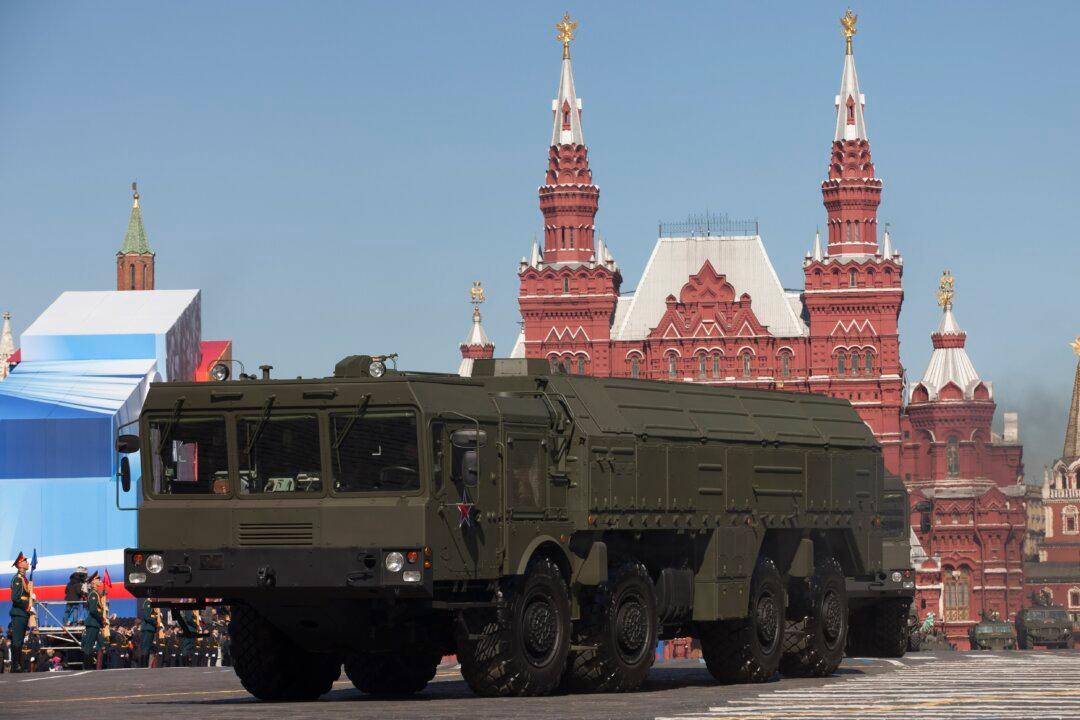Russia has confirmed the deployment of Iskander missiles, capable of nuclear strikes, at its Kaliningrad outpost near the borders of Poland and Lithuania.
Lithuania, Estonia, and Poland—all NATO members—have expressed concerns over the missiles’ deployment in the region.
But the Kremlin has downplayed the significance of moving the Iskander missiles to Kaliningrad. In a statement, the defense ministry said it was merely part of regular drills and were no secret.
“First of all, the authors behind the fuss should know that the Iskander missile system is a mobile one,” a ministry spokesman, Gen Igor Konashenkov, told The Guardian. “As part of the combat training plan, units of the missile forces throughout the year improve their marching capabilities by covering great distances across the territory of the Russian Federation in various ways: by air, sea and on their own.”
State-backed Sputnik News said that after Russia’s deployment of the missiles, the “media rushed into a frenzy this week,” while adding that “the placement of the mobile missile system is part of a routine drill and that it should not be read into too deeply.”
The move comes as relations between the U.S. and other NATO nations have been their lowest point in decades, with tensions having mainly been fueled by the war in Syria. Moscow has taken the side of Syrian President Bashar al-Assad, while the U.S. has backed rebels fighting regime forces.
Lithuanian Foreign Minister Linas Linkevicius said the deployment of the Iskander missiles is a breach of a nuclear weapons treaty.
“Russia is holding military exercises in Kaliningrad, and its scenario includes deployment of Iskander missile systems and the possible use of them. We are aware of it,” he told the AFP news agency.
The missiles, he added, have a range of about 435 miles, meaning they could reach the German capital of Berlin.
The defense minister of Poland, Antoni Macierewicz, issued comments on Saturday describing the move as “very alarming.”
Estonia, another country that borders Russia, has been worried about the development, with Estonian Defense Forces chief of staff, Lieutenant General Riho Terras, saying that he believes the move is part of a Russian attempt to dominate the Baltic Sea. “In the long term, Russia’s wish is to bring the Baltic Sea and the passages leading to it more and more under its control, and to control it much like it does the Black Sea,” Terras said, reported The Independent.
Russia has frequently displayed its Iskander missiles, which are road-mobile, during military parades—especially during the Victory Day Parade on May 9. The missile appears to have different warheads, including nuclear-capable ones, cluster munitions, fuel-air explosives, earth-penetrators, and ones that can deliver an electromagnetic pulse.





